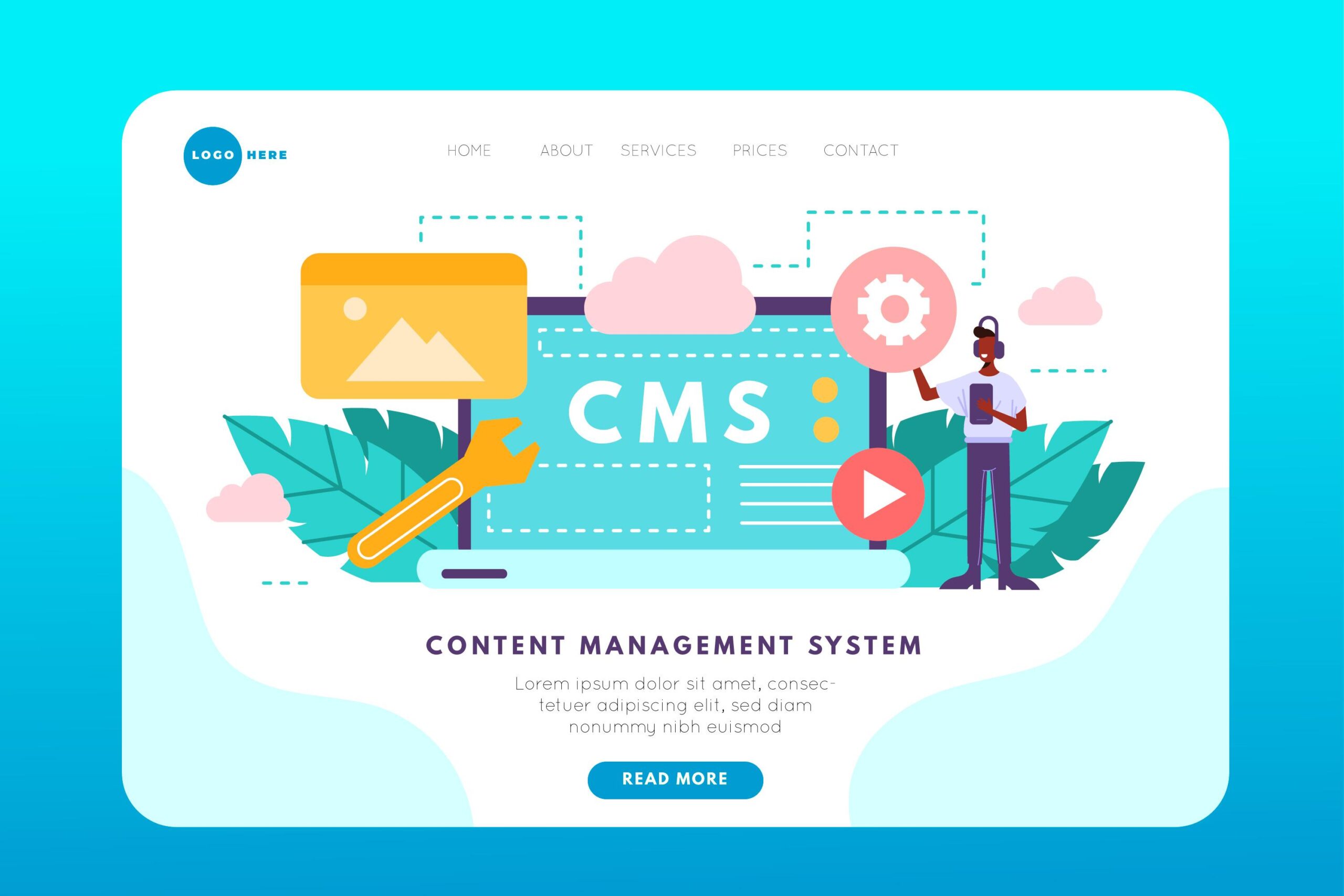For Marketers: Which CMS is Good?
As a marketer, having a powerful CMS is essential to managing your online presence. But with so many options out there, it can be overwhelming to choose the right one. Luckily, I’ve done the research for you and narrowed down the top CMSs for marketers.
In this article, we’ll explore the key features of each CMS and how they can benefit your marketing strategy. So sit back, relax, and get ready to learn which CMS is best for your marketing needs.
What is a CMS?
Before diving into the best CMSs for marketing, let’s first define what a CMS is. A CMS, or Content Management System, is a software application that allows you to create, manage, and publish digital content on the web.
With a CMS, you can easily create and edit web pages, upload images and videos, and manage your website’s overall structure and design. A CMS also makes it easy to collaborate with others, allowing multiple users to access and edit content.
Key Features to Look for in a Marketing CMS
When it comes to choosing a CMS for marketing, there are certain key features you should keep in mind. Here are some of the most important features to look for:
- SEO Optimization: A good CMS should have built-in SEO tools to help you optimize your content for search engines. This includes features such as meta descriptions, title tags, and keyword analysis.
- Content Creation and Management: Your CMS should make it easy to create and manage content, with a user-friendly interface and intuitive navigation. This includes features such as drag-and-drop page builders, easy-to-use templates, and customizable content blocks.
- Integration with Marketing Tools: Your CMS should seamlessly integrate with your other marketing tools, such as email marketing platforms, social media management tools, and analytics software.
- E-commerce Capabilities: If you plan to sell products or services through your website, your CMS should have robust e-commerce capabilities, including payment processing, inventory management, and order tracking.
- Mobile Optimization: With more and more users accessing the web on their mobile devices, your CMS should be optimized for mobile viewing, with responsive design and mobile-friendly features.
Best CMS for Marketers
Now that we’ve covered the key features to look for in a marketing CMS, let’s explore the best CMS on the market for marketers.

WordPress
WordPress is the most popular CMS in the world, powering over 40% of all websites on the internet. Its popularity is due in large part to its ease of use, flexibility, and the vast array of plugins and themes.
WordPress is also highly customizable, with a wide range of templates and design options to choose from. It’s also SEO-friendly, with built-in tools to help you optimize your content for search engines.
One of the biggest advantages of WordPress for marketers is its integration with a variety of marketing tools. It’s easy to connect your WordPress site to your email marketing platform, social media accounts, and analytics software.
Pros of WordPress:
- Easy to use and highly customizable
- Large selection of plugins and themes
- SEO-friendly
- Integrates with a variety of marketing tools
Cons of WordPress:
- Security concerns due to its popularity
- Limited support: While there are many resources available online for troubleshooting WordPress issues, the platform itself does not offer much support for its users.
- Can be overwhelming: With so many options and features available, WordPress can be overwhelming for beginners who are new to CMSs.

HubSpot
HubSpot is a popular all-in-one marketing platform that includes a powerful CMS as one of its core features. The platform is designed to help businesses attract, engage, and delight customers with a wide range of marketing tools.
One of the biggest advantages of HubSpot’s CMS is its focus on inbound marketing. The platform includes features such as lead capture forms, landing pages, and email marketing, all designed to help businesses attract and convert leads into customers.
HubSpot’s CMS also includes built-in SEO tools, mobile optimization, and a drag-and-drop page builder for easy content creation. Plus, with HubSpot’s all-in-one platform, you can easily integrate your website with your other marketing tools, such as your CRM and social media management software.
Pros of HubSpot:
- All-in-one marketing platform
- Built-in SEO tools and mobile optimization
- Focus on inbound marketing
- Integration with other marketing tools
Cons of HubSpot:
- Expensive: HubSpot’s pricing can be prohibitive for smaller businesses or those on a tight budget.
- Limited customization: While HubSpot’s CMS is user-friendly, it can be limiting in terms of design customization.

Squarespace
Squarespace is a popular CMS known for its sleek, modern designs and user-friendly interface. The platform is designed with creatives in mind, making it a great choice for businesses in industries such as photography, fashion, or design.
Squarespace includes a variety of templates to choose from, each with its own unique design and layout. The platform is also highly customizable, with options to change fonts, colors, and other design elements.
One of the biggest advantages of Squarespace is its e-commerce capabilities. The platform includes built-in tools for online stores, including payment processing, inventory management, and order tracking.
Pros of Squarespace:
- Sleek, modern designs
- User-friendly interface
- E-commerce capabilities
- Highly customizable
Cons of Squarespace:
- Limited plugins: Unlike WordPress, Squarespace does not offer a wide range of plugins or third-party integrations.
- Limited SEO tools: While Squarespace does include some basic SEO tools, they are not as robust as those offered by other CMSs.

Wix
Wix is a popular CMS known for its drag-and-drop website builder and easy-to-use interface. The platform includes a wide range of templates to choose from, making it easy to create a professional-looking website without any coding knowledge.
Wix also includes a variety of features designed specifically for businesses, such as lead capture forms, email marketing, and e-commerce capabilities. The platform also offers built-in SEO tools and mobile optimization.
One of the biggest advantages of Wix is its affordability. The platform offers a variety of pricing plans, with options to suit businesses of all sizes and budgets.
Pros of Wix:
- User-friendly interface and drag-and-drop website builder
- Affordable pricing
- Built-in SEO tools and mobile optimization
- Features designed specifically for businesses
Cons of Wix:
- Limited customization: While Wix offers a wide range of templates, there is less flexibility in terms of design customization.
- Limited scalability: Wix may not be the best choice for larger businesses with more complex needs.
Conclusion
In conclusion, choosing the right CMS is crucial for any marketer who wants to succeed in today’s digital landscape. The right CMS can help you create and manage high-quality content, optimize your website for search engines, integrate with your marketing tools, and ultimately, drive more traffic and conversions.
When it comes to choosing a CMS for marketing, there is no one-size-fits-all solution. Each platform has its own unique strengths and weaknesses, and the best CMS for you will depend on your specific needs and budget.
If you’re looking for a user-friendly and customizable CMS with robust SEO tools and integration with marketing tools, WordPress is a great choice. With its vast array of plugins and themes, WordPress offers endless possibilities for creating a website that’s both beautiful and functional.
If you’re looking for an all-in-one marketing platform that includes a powerful CMS, HubSpot may be the right choice for you. With its focus on inbound marketing and integration with a variety of marketing tools, HubSpot can help you attract, engage, and delight your customers all in one place.
For those in creative industries who want a sleek and modern website with e-commerce capabilities, Squarespace may be the way to go. And if you’re on a tight budget, Wix offers an affordable option with a user-friendly drag-and-drop website builder.
Ultimately, the best CMS for marketing will depend on your specific needs and goals. By evaluating the key features of each platform and carefully considering your budget, you can find the perfect CMS to take your marketing to the next level.
So don’t wait any longer – start exploring the best CMSs for marketing today and take your online presence to new heights!







